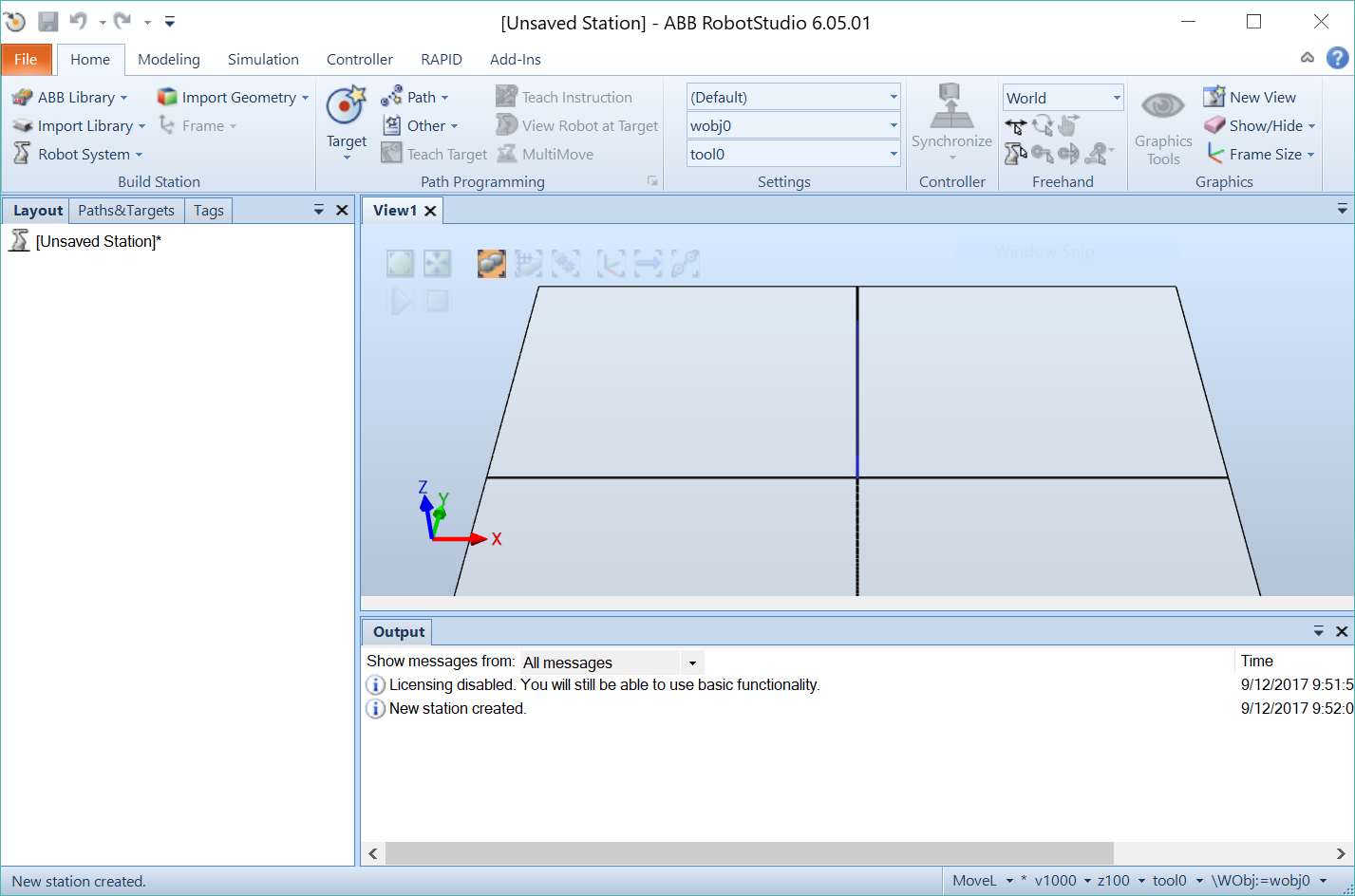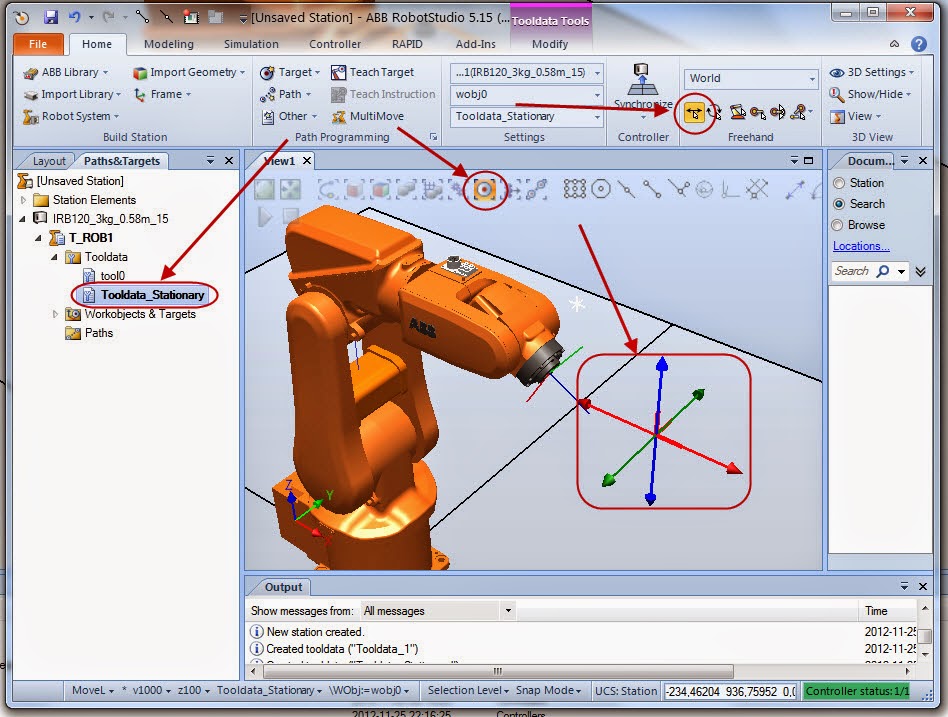

Rostopic echo joint_states (should match the robot’s joint positions)Ĥ) Verify the arm_navigation environment mirrors the physical robot

Roslaunch abb_common robot_interface.launch robot_ip:= The virtual robot should move.ģ) Run the robot interface nodes to verify connectivity with the robot: Roslaunch myRobot_arm_navigation planning_scene_warehouse_viewer_myRobot.launchī) try planning a trajectory and executing it. neg motion) and zero position are correctĢ) Run the planning scene in simulation mode to verify the arm_navigation (or moveit) package is configured correctly Roslaunch urdf_tutorial display.launch model:= gui:=Trueī) move the joint-sliders to verify the robot moves correctlyĬ) especially check that the joint directions (pos vs.
Abb robotstudio 6.02 code#
Once you have the code installed, I usually check things out in stages:ġ) Interact within rviz to verify the URDF is set up properly: Installation from either source is described on GoogleCode, but we are in the process of transitioning them to
Abb robotstudio 6.02 install#
If you prefer, you can install directly from the source repositories. The easiest way to install ROS-Industrial is from the binary debian packages. I think it’s even marked as “deprecated”, and is probably not updated with the latest ROS-Industrial Actually, that repository is a fork of the main repository.


 0 kommentar(er)
0 kommentar(er)
